|
https://ift.tt/3235Xl2
Google’s John Mueller on Good Links and How to Get Them via @martinibuster https://ift.tt/2FG6Ar6  In a Webmaster Hangout, Google’s John Mueller was asked to define what a good link is and how to get them. John Mueller also made reference to “other signals” that can power up your rankings. Example of a Good LinkThe question asked is a good one. Here is what the publisher asked: “Could I get an example of… what a good link would be…?” Google’s John Mueller answered:
John Mueller probably understands that a good link doesn’t happen by itself. He said something interesting, he recommended promoting the website. There are many who feel that website promotion tied to link building is not necessary. But John Mueller acknowledged the obvious, that a ball isn’t going to roll until someone gives it a push. Here’s what Google’s Mueller said:
The publisher responded that he doesn’t build links and like many, feels that it’s spammy. He has a point. Many people approach link building like beggars asking for spare change. It’s a nuisance. Others approach it as a transaction and offer to pay for the links. It seemed like the publisher didn’t like either options and was trying to find a way to build links that didn’t feel spammy to him. Here is the follow up question:
Google’s John Mueller acknowledged the difficulty of links:
Other Signals Apart From LinksHere’s where it gets super interesting. I’ve long suspected that the role of links has been shrinking. Natural links seem like they don’t happen often anymore. If Google is discounting non-natural links, then what else is Google using? John Mueller seems to acknowledge there are other signals that Google uses:
The “other signals” is an interesting reference. Something that needs an entire article to address. I sure hope someone asks him about that in a future hangout. Links Are Still ImportantJohn Mueller finished by affirming the importance of links. His answer wasn’t an end to end link strategy, but it’s good that he affirmed that promotion is important and that it doesn’t need to be spammy. Here’s what he said:
Links Not CriticalOne more insight that bears pointing out. Mueller said that if the content is good, that once it’s found, links aren’t critical.
That’s a lot to think about. To get you started, check out How to Super Power Your Link Building SEO via Search Engine Journal https://ift.tt/1QNKwvh June 30, 2019 at 10:10PM
0 Comments
https://ift.tt/2Noajjy
How to Super Power Your Link Building via @martinibuster https://ift.tt/2Lq7aNg 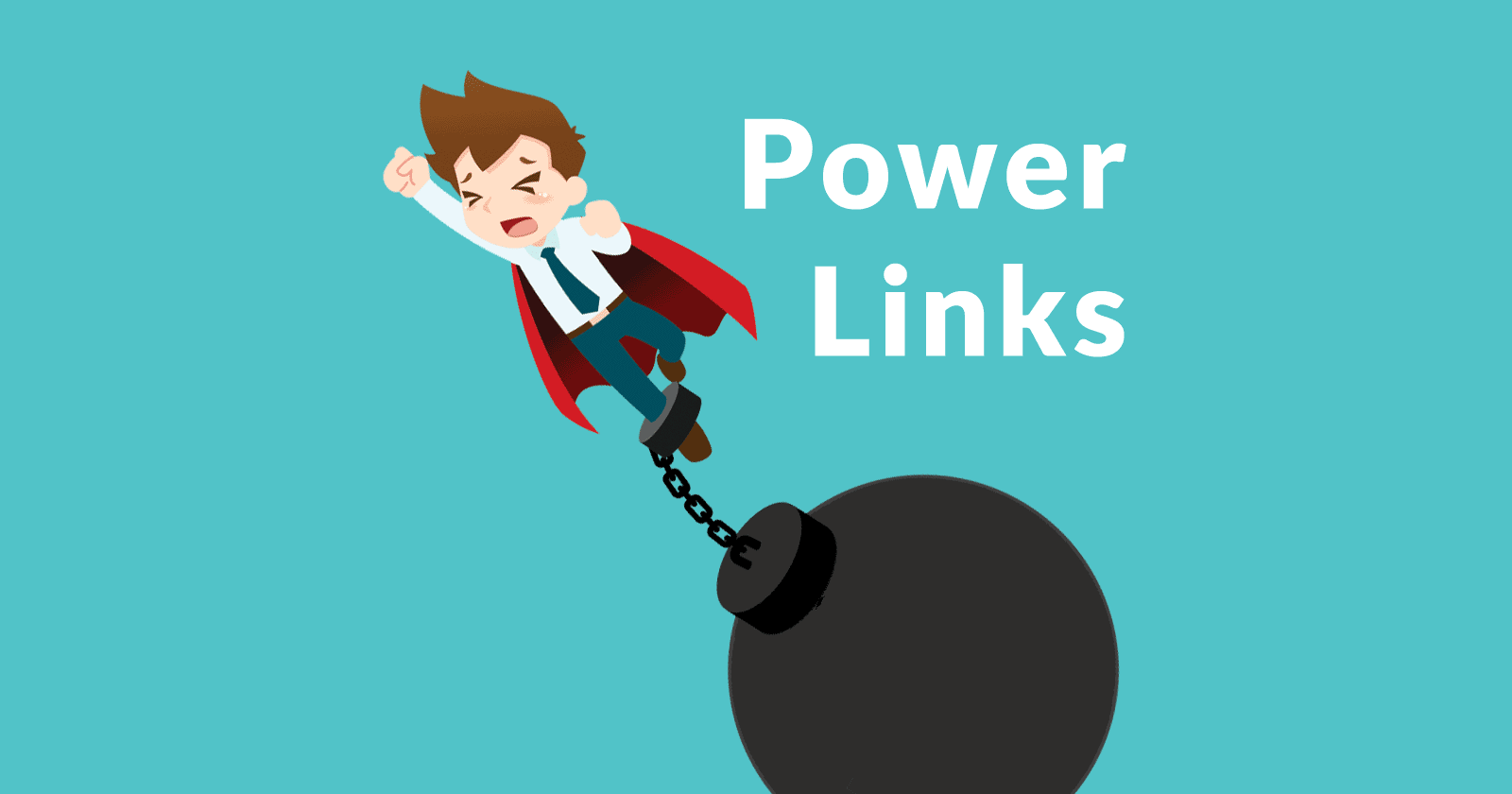 A problem facing link building today projects is a disconnect between the goals of link building (more links) and the goals of the company (more sales/leads/ad views). Additionally, there are “other signals” that may be playing a role. This results in link strategies with diminishing effect. How to Realign Link Building for SuccessA few years ago I did a site review session at Affiliate Summit New York. The links pointing to a site I was reviewing were irrelevant and of low quality. The links did not match the high quality of the site itself. The company had hired an outside link builder. The link builder did what they needed to do to fulfill their contract. This resulted in links that met agreed upon metrics. Yet despite having an agreement about links, the quality of the links still fell short and the project resulted in no increase in traffic, sales or leads. There were two reasons that the link building project failed:
How to Make Link Building WorkCoordinating Links with ContentA major reason some link building projects fail is the architecture of the project itself. A company outside of the organization or within the organization itself, is tasked with building links independently and disconnected from everything else going on at the company.
The best link building should have some degree of integration and coordination with a content strategy. It doesn’t make sense to have a team working on content and another team working in isolation doing their mystery mojo link building. In an ideal world, there is communication between the content and link building sides, even if the link building is outsourced. What’s planned for content can help juice up the link building side because it gives the link building something to support. Do it like this and the link building returns the favor by juicing up the content, making it more powerful. Link building is not really about links. Link building is about putting air underneath the wings of the content, helping it gain altitude and fly, which is a metaphor for attracting traffic and links. In my experience, link building is not about building links in a vacuum. Link building is about supporting the goals of the content, such as traffic, sales and leads. Gaining awareness for the content can be a goal of link building. That opens up a wide area of outreach for the purpose of gaining awareness, which includes podcasting, video, interviews… the possibilities are almost endless. The end result is the gold standard of links which are naturally given links that were not asked for. Another effect can be what John Mueller cryptically referred to as “other signals.”
He’s making reference to signals that indicate that a web page or website is useful. What those signals are is beyond the scope of this article. But I will propose that getting the word out about a site and making people enthusiastic about it will make itself known via positive mentions, even if without a link. Could those be used as an alternative to links? Could users typing in your domain name and asking for your web pages also be an “other signal?” Link Quotas and MetricsThe second reason link building projects fail are monthly quotas and performance metrics that the links themselves must pass. Link Building QuotasMonthly quotas sets up a path to desperation where the link builder starts sweating about where they’re going to get this month’s links. Almost inevitably this leads to link buying, scaling (which is a euphemism for email spamming) , and shortcuts that are not in the interest of the client. I know for a fact that some companies that sell themselves on “genuine outreach” are really just mass spamming in advance to build link inventory that is then purchased from the publisher and sold to the user. In addition to being in violation of FTC guidance about telling users about paid advertising, it’s also against Google’s guidelines. When a link building strategy broadens it’s focus beyond links and thinks in terms of awareness building, the kinds of projects available opens up to projects that can result in naturally given links. For example, an article without a link in it, or with a nofollow link, can help build awareness. It can also create the opportunity where other sites may give a natural link to the author. Another benefit is that it can cause people to search Google with the company name, thereby providing a signal that people want to see this site in the search results. That, in my opinion, might be a ranking signal and at the very least could serve to help it be found in the Google Suggest results. Link Building MetricsLink building metrics have consistently been arbitrary or based on bad SEO information. For example, when Google used to show a PageRank metric on the Google Toolbar, it was common practice to seek links that were a minimum of PageRank 4. The reason for this practice is that when you searched Google for backlinks using the link: advanced search operator, Google used to show links from sites that were PageRank 4 and above. The SEO industry inferred that the reason for this was because PageRank 4 sites were more important. The reality was that Google never intended to show all backlinks. Google intended to only show a sample of links. When creating the link search operator, the engineers randomly chose the PageRank value of 4. Google search engineers had no idea that this would cause the SEO industry to wrongly infer importance to the PageRank value of four. And thus began an erroneous SEO practice, the refusal to accept any link that was less than a PageRank of four. As silly as that might sound, the SEO industry is behaving even worse today than back then. At least in the past the SEO community was mistaken about an actual Google metric, PageRank, which could be seen on their toolbar. Today the SEO community is fixated on an arbitrarily chosen Moz Domain Authority metric threshold. Low PageRank links were always valuable and the most sophisticated black hat spammers along with a few smart SEOs understood the power of quantity and relevance mattered more than the PageRank number. Those days are over, of course. Ranking with links is significantly harder and more nuanced today than in the past. But one thing that hasn’t changed is that applying a minimum threshold of Moz Domain Authority or any other metric is a mistake because all links matter. The first object of a successful link building project is to coordinate link building with content strategy. This is based on how search engines rank pages today. In the past it was enough to “build” links to the home page and let the PageRank trickle through to the pages below. Today it is imperative for pages to stand or fall on their own. The more links an individual page receives the more important it will be perceived. Yet, the content of the page also matters. You can’t just throw thousands of high quality relevant links at content that is not relevant in the way users want it and expect it to rank. The relevance of content to users still matters. So in my opinion, link building/awareness building and content creation should ideally work together because that’s how Google appears to be ranking pages, increasingly because of the relevance of content to users. SEO via Search Engine Journal https://ift.tt/1QNKwvh June 30, 2019 at 09:18PM
https://ift.tt/2KNQpML
Study Reveals the Top 5 SEO Mistakes Made by Marketing Agencies via @MattGSouthern https://ift.tt/2XcUDz7  A study of top marketing agencies in the UK reveals the most common mistakes made when it comes to SEO. Reboot Online audited the top 30 ranking marketing agencies in the UK, including itself, to discover the marketing and SEO mistakes being made. The 5 most common SEO issues found were:
Other honorable mentions, so to speak, include:
After analyzing all the mistakes made by agencies, the study included a brief section on the things they’re doing well. Agencies are doing exceptionally well when it comes to E-A-T, the study finds. That assessment is based on the following factors:
For further analysis of these findings, read the full study here. SEO via Search Engine Journal https://ift.tt/1QNKwvh June 30, 2019 at 08:38PM
https://ift.tt/2XbmCz1
AMP'd Up for Recaptcha https://ift.tt/2XcCZM3 Beyond search Google controls the leading distributed ad network, the leading mobile OS, the leading web browser, the leading email client, the leading web analytics platform, the leading free video hosting site. They win a lot. And they take winnings from one market & leverage them into manipulating adjacent markets. Embrace. Extend. Extinguish.
AMP is an utterly unnecessary invention designed to further shift power to Google while disenfranchising publishers. From the very start it had many issues with basic things like supporting JavaScript, double counting unique users (no reason to fix broken stats if they drive adoption!), not supporting third party ad networks, not showing publisher domain names, and just generally being a useless layer of sunk cost technical overhead that provides literally no real value. Over time they have corrected some of these catastrophic deficiencies, but if it provided real value, they wouldn't have needed to force adoption with preferential placement in their search results. They force the bundling because AMP sucks. Absurdity knows no bounds. Googlers suggest: "AMP isn’t another “channel” or “format” that’s somehow not the web. It’s not a SEO thing. It’s not a replacement for HTML. It’s a web component framework that can power your whole site. ... We, the AMP team, want AMP to become a natural choice for modern web development of content websites, and for you to choose AMP as framework because it genuinely makes you more productive." Meanwhile some newspapers have about a dozen employees who work on re-formatting content for AMP. Feeeeeel the productivity! Some content types (particularly user generated content) can be unpredictable & circuitous. For many years forums websites would use keywords embedded in the search referral to highlight relevant parts of the page. Keyword (not provided) largely destroyed that & then it became a competitive feature for AMP: "If the Featured Snippet links to an AMP article, Google will sometimes automatically scroll users to that section and highlight the answer in orange." That would perhaps be a single area where AMP was more efficient than the alternative. But it is only so because Google destroyed the alternative by stripping keyword referrers from search queries. The power dynamics of AMP are ugly:
After enough publishers adopted AMP Google was able to turn their mobile app's homepage into an interactive news feed below the search box. And inside that news feed Google gets to distribute MOAR ads while 0% of the revenue from those ads find its way to the publishers whose content is used to make up the feed. Appropriate appropriation. :D
Each additional layer of technical cruft is another cost center. Things that sound appealing at first blush may not be:
Anything that is easy to implement & widely marketed often has costs added to it in the future as the entity moves to monetize the service. This is a private equity firm buying up multiple hosting control panels & then adjusting prices. This is Google Maps drastically changing their API terms. This is Facebook charging you for likes to build an audience, giving your competitors access to those likes as an addressable audience to advertise against, and then charging you once more to boost the reach of your posts. This is Grubhub creating shadow websites on your behalf and charging you for every transaction created by the gravity of your brand.
Settling for the easiest option drives a lack of differentiation, embeds additional risk & once the dominant player has enough marketshare they'll change the terms on you. Small gains in short term margins for massive increases in fragility.
The other big issue is platforms that run out of growth space in their core market may break integrations with adjacent service providers as each want to grow by eating the other's market. Those who look at SaaS business models through the eyes of a seasoned investor will better understand how markets are likely to change:
Most platform companies are initially required to operate at low margins in order to buy growth of their category & own their category. Then when they are valued on that, they quickly need to jump across to adjacent markets to grow into the valuation:
Large platforms offering temporary subsidies to ensure they dominate their categories & companies like SoftBank spraying capital across the markets is causing massive shifts in valuations:
Circling back to Google's AMP, it has a cousin called Recaptcha. Recaptcha is another AMP-like trojan horse:
About a month ago when logging into Bing Ads I saw recaptcha on the login page & couldn't believe they'd give Google control at that access point. I think they got rid of that, but lots of companies are perhaps shooting themselves in the foot through a combination of over-reliance on Google infrastructure AND sloppy implementation Today when making a purchase on Fiverr, after converting, I got some of this action
Hmm. Maybe I will enable JavaScript and try again.
Oooops.
That is called snatching defeat from the jaws of victory. My account is many years old. My payment type on record has been used for years. I have ordered from the particular seller about a dozen times over the years. And suddenly because my web browser had JavaScript turned off I was deemed a security risk of some sort for making an utterly ordinary transaction I have already completed about a dozen times. On AMP JavaScript was the devil. And on desktop not JavaScript was the devil. Pro tip: Ecommerce websites that see substandard conversion rates from using Recaptcha can boost their overall ecommerce revenue by buying more Google AdWords ads. --- As more of the infrastructure stack is driven by AI software there is going to be a very real opportunity for many people to become deplatformed across the web on an utterly arbitrary basis. That tech companies like Facebook also want to create digital currencies on top of the leverage they already have only makes the proposition that much scarier. If the tech platforms host copies of our sites, process the transactions & even create their own currencies, how will we know what level of value they are adding versus what they are extracting? Who measures the measurer? And when the economics turn negative, what will we do if we are hooked into an ecosystem we can't spend additional capital to get out of when things head south?
Categories:
SEO via SEO Book http://www.seobook.com June 30, 2019 at 08:02PM
https://ift.tt/2NkLkxf
Google’s Diversity Update Gives Smaller Sites a Chance to Rank via @MattGSouthern https://ift.tt/2FIS9Tn  A study on the effect of Google’s diversity update concludes smaller sites have a greater chance to rank for competitive keywords. Google’s diversity update, rolled out earlier this month, aims to limit the number of times a domain can appear in a single SERP. According to Google, no more than two URLs from the same domain should appear in a single SERP. Searchmetrics analyzed the SERPs since the diversity update rolled out to discover whether it’s working as promised. In conducting this study, Searchmetrics compared the results for a set of thousands of keywords from March 2019 with results from June 2019. Here’s what was discovered:
Google will still return multiple results from the same domain when the name of the domain is included in the query. This shows Google is not sacrificing relevance for the sake of diversity. The study also found that the diversity update impacts transactional searches to a greater degree than informational searches. As a result, searchers are seeing a wider variety of domains when looking for a product to buy. This is good news for smaller retailers who now have an opportunity to show up for keywords that were once dominated by giants like Amazon. When it comes to informational searches, Google is more likely to return up to three URLs from the same domain. For example, searches for recipes will likely contain multiple results from Allrecipes.com. For more information about the impact of Google’s diversity update, see the full study here. SEO via Search Engine Journal https://ift.tt/1QNKwvh June 30, 2019 at 06:18PM
https://ift.tt/2XjxGPu
Paid Search Spend Expected to Grow 22.5% This Year in Retail Sector via @MattGSouthern https://ift.tt/2NoV9dH  According to eMarketer’s latest figures, paid search spend in retail is expected to grow by 22.5% this year. In total, retailers are expected to spend $13.12 billion on search advertising in 2019. Retail spend will account for the largest share of search dollars this year at nearly one-quarter of the total US search market. Oscar Orozco, a senior forecasting analyst at eMarketer, predicts this level of spending will continue with the rise of voice search:
Here are some other figures included in the report related to retail advertising:
SEO via Search Engine Journal https://ift.tt/1QNKwvh June 30, 2019 at 04:09PM
https://ift.tt/2RKhktk
AMP HTML Now Supports Autocomplete for Faster Search Experiences via @MattGSouthern https://ift.tt/2KMQIYb  AMP pages can now more closely mirror the behavior of regular HTML pages with autocomplete for search and forms. An autocomplete-enabled input field suggests completed results corresponding to what the user is typing. As you likely know from this being a common feature in regular pages, it can greatly speed up the time it takes to complete a task. AMP-autocomplete can be used to power on-site search experiences, or in forms to help ensure inputs yield more predictable results. When a user types into an input field with amp-autocomplete, relevant suggestions will automatically appear below the input field. This feature can also be used to generate a list of suggestions for a particular input field. For example, a search bar on an e-commerce site can automatically suggest the most popular products with amp-autocomplete. Data can either be fetched from a JSON endpoint or locally from amp-state. For more on the technicalities of how this feature works and how to set it up, see the official documentation here. SEO via Search Engine Journal https://ift.tt/1QNKwvh June 30, 2019 at 10:03AM
https://ift.tt/2Nj2ICC
Content Marketing: The 5 Most Important Things You Need to Know via @Stevenvvessum https://ift.tt/2Nl03bH Content marketing: it’s on everyone’s agenda, but it’s rarely done right. Now you’re likely thinking: “That’s not true! I did it right! I put together the world’s best piece of content on topic X!” And sure, you really may have created the best piece of content on that topic, but what did it result in? I’m talking visits, soft conversions, hard conversions, and money. And did you even promote that piece? Sorry if I’m bursting your bubble, but creating the best possible piece of content doesn’t guarantee success. Nothing really does, of course… but here are five important pieces of knowledge that will help you massively increase your chances of success. 1. Best Content ≠ Most Successful ContentYou spend days working on a piece of content. You do your research, write it, improve it. You have it proofread, and you improve it some more. You then include amazing visuals, explainer videos, and all – you’ve nailed the search intent for some interesting queries, and you hit “publish”. And then it gets a mediocre 100 visits, and the traffic dies out. But then out of the blue comes an established brand that had an underpaid ghostwriter manufacture a mediocre, run-of-the-mill piece that’s getting thousands of visitors. It’s getting shared around as if it’s the best thing since sliced bread, and people are raving about it. It’s incredibly frustrating to see this happen. You know your competitor’s content is mediocre. It shouldn’t get all that attention – in an ideal world. But we don’t live in an ideal world. We live in a world that can be really unfair. This applies to content marketing too. It’s not a level playing field. It’s a series of “David and Goliath” boxing matches, where David loses quite a few of the rounds and even matches, but has to keep on trying. He needs to pick his battles, and outsmart Goliath rather than always charging head-on. Why? Because the Goliath is an established brand with a newsletter subscriber list that’s 200,000 strong and a large social media following. The party that’s promoting the content is well-known and surrounded by brand ambassadors. You’re not going to beat them at their own game. Therefore, you need to play your game. My Advice
2. Create Multi-Purpose ContentYou’re putting in a lot of research into writing your content piece. So leverage that investment by creating other types of content too. For instance, an evergreen content piece can (partially) be repurposed as a:
By creating multi-purpose content, you can easily triple the ROI on your investment. Take the ContentKing Academy for example (Disclosure: this is where I work). It’s a way for us to get in touch with our target audience, sure – but we’re also sending our existing customers to it from our application when they want to read more about certain issues. Here’s an example issue:  When you click the “Learn why” link, it expands to: 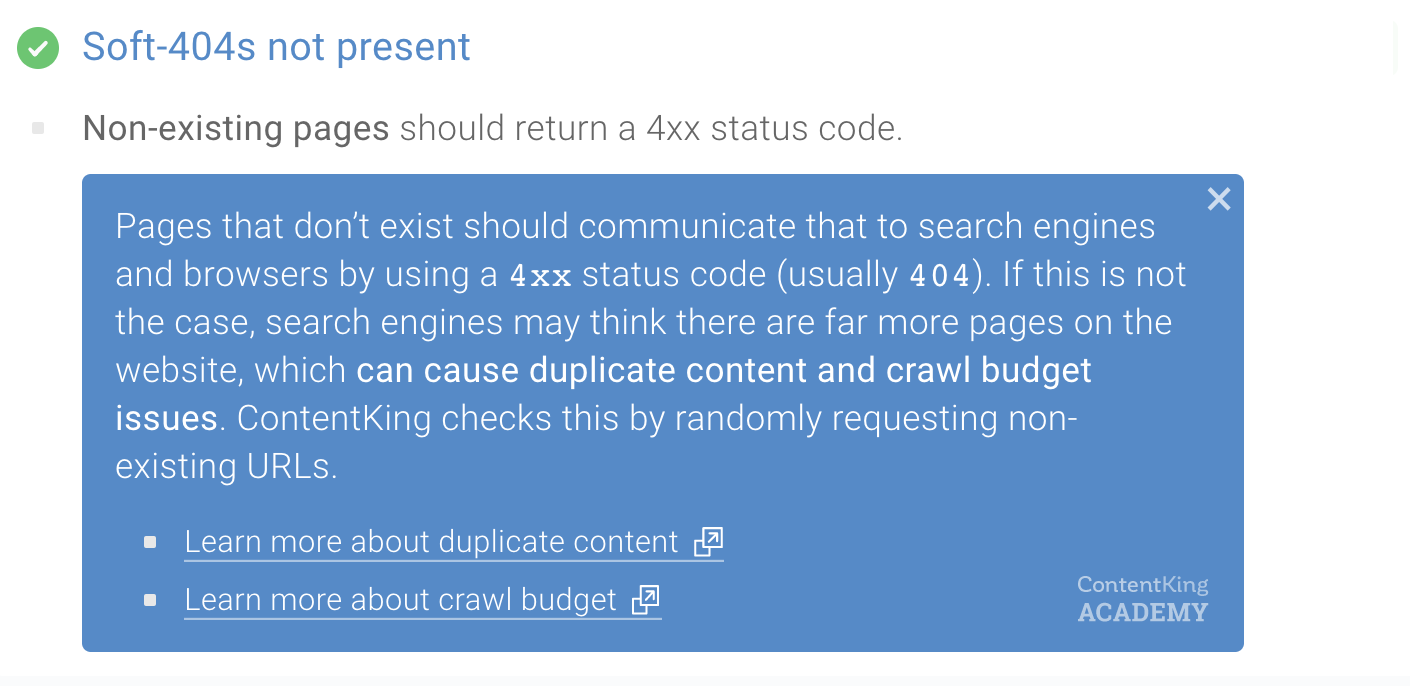 And from there, you can read on about these topics. Doing this takes pressure off of our support team, and improves our relationship with our customers. 3. Creating the Best Content Is Not That Hard, It’s Just Hard WorkI’ll let you in on a secret: creating the best content isn’t that hard. It’s just hard work. There are no shortcuts. Focus on creating something that provides the most value to visitors. Make sure your content nails their search intent. Think like your potential visitors. How can you best satisfy their question’s intention? When you’re covering a topic that’s been covered before, make sure to create the most complete and accurate content piece out there. Example: if you want to rank for “apple pie recipe”, then you need to have a detailed description of that recipe on your page. Make sure to mark it up using structured data. When people are searching for queries around baking and cooking, often they’ll want to see a video too. And reviews/votes from people that have already used your recipe to bake their apple pie. Maybe you can even add support that lets your visitors upload photos of their apple pies after they’ve baked them using your recipe. My Advice
4. Core Content Is the Key to ROICore content is content that your target audience is interested in, and that’s close to your products and/or services. Making the leap from that content to a (soft) sale is easy. Mind you, not all core content is going to perform well just by itself. You can create related content around this core content that pulls the visitors in and then encourage people to read on to your core content. It’s similar to the classic hubs and spoke model. Does it make sense for a technical SEO tool to write about link building? It’s somewhat related because of the shared SEO topic, but is it core content? No. Is it a good investment? It depends. If your core content is already doing really well, and you want to get more “top of the funnel” visits, then go for it. If your core content isn’t in order yet, then probably no. However, you could have a good reason to create the content anyway, because there could be lots of PR value in it. PR gets you attention, and as a spin-off, links that your whole site benefits from. My Advice
5. Control & Protect Your InvestmentBe mindful of where you publish your content. Using platforms such as Medium, Quora Posts, and LinkedIn Pulse sounds great, because you can start writing straight away, and you can potentially reach a massive audience. But there are major downsides to it as well. For context here: you’re making a massive investment by creating the most awesome content pieces out there, and so you have to be able to get a good ROI and protect that investment. Here are the two most important downsides: No ControlYou don’t control these external platforms. They may shut down at some point because they’re moving in a different direction (Google Plus anyone?), making your content inaccessible. Or they can choose to start pushing a premium subscription, making it impossible for some of their readers to consume your content. Or – if the platform allows for ads – your competitor’s ads are featured alongside your content. Questionable ROIExternal platforms often don’t support adding Call-To-Action boxes or newsletter signup forms. This makes it harder to give your content a good ROI. Plus, when your content is going viral and gaining links, they’re pointing to the external platform rather than your own website. You’ll find yourself struggling to rank your own website, creating a weakness and a dependency on the external platform. My Advice
In SummaryContent marketing isn’t just about creating the best piece of content out there. It’s about making sure you get a great ROI out of it. To maximize your chances for this, be sure to promote your content, to create content that’s close to your business’ core, and to re-use it for different purposes such as conference talks, FAQs, and guest posts. Work hard, and pick the fights in which you’re likely to beat your competition. And last but not least: make sure to control and protect your investment in content marketing. If your business is reliant on it, you want to make sure to hold it close. More Resources: Image Credits All screenshots taken by author, June 2019 SEO via Search Engine Journal https://ift.tt/1QNKwvh June 30, 2019 at 08:06AM Microsoft Advertising FKA Bing Ads Rolls Out Support for Parallel Tracking via @MattGSouthern6/30/2019
https://ift.tt/2FLeMqe
Microsoft Advertising, FKA Bing Ads, Rolls Out Support for Parallel Tracking via @MattGSouthern https://ift.tt/324nPf8 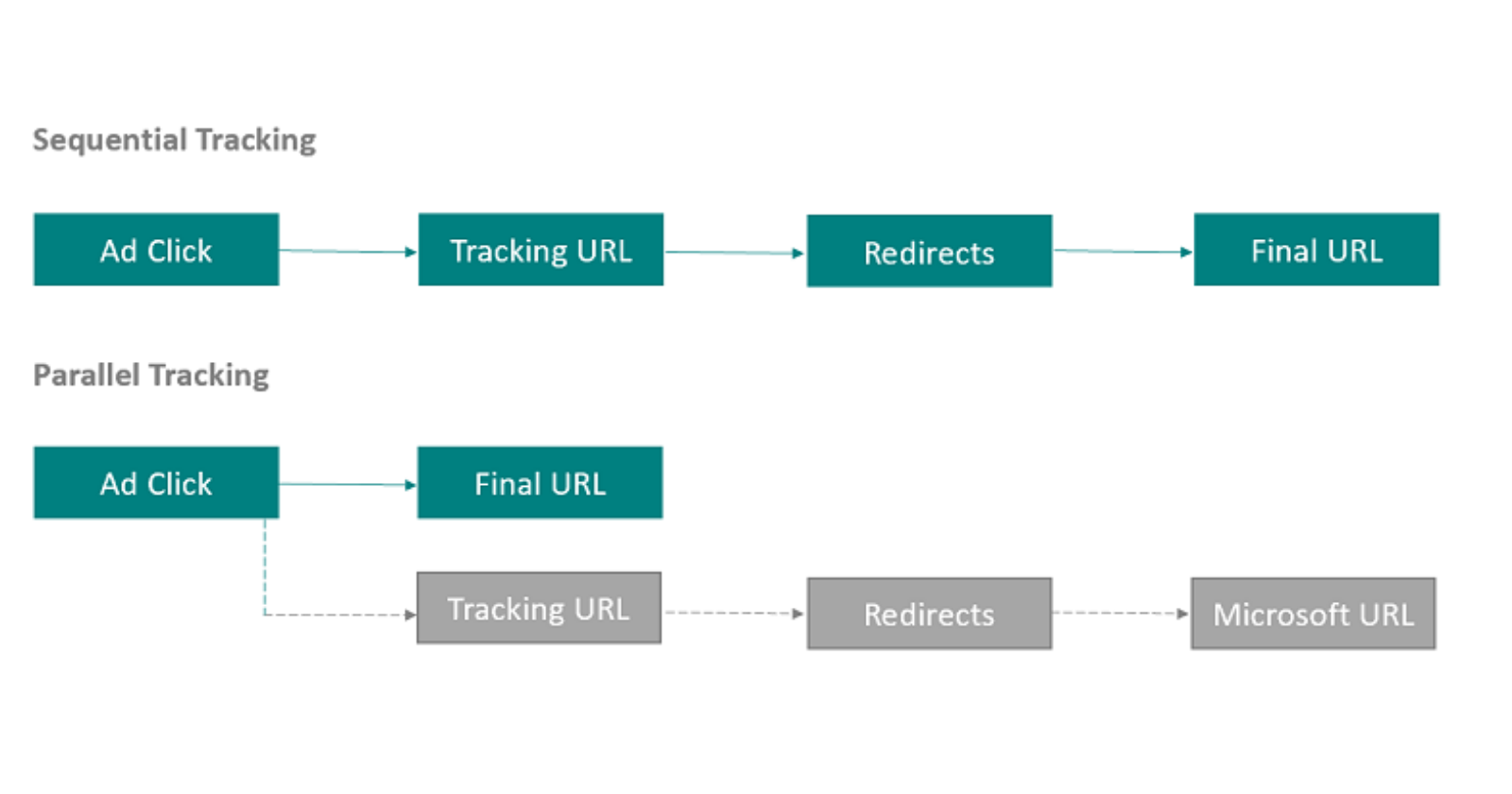 Microsoft Advertising, formerly Bing Ads, is rolling out a series of new features designed to help pages load faster after an ad click. One of those features is parallel tracking, which has been supported by Google Ads for over a year. Parallel tracking is finally being supported by Microsoft Ads, which means click-measurement processing will be done in the background while users are taken directly to the final URL. Without parallel tracking, the consumer is taken through a series of redirects before landing on the final URL. Microsoft emphasizes the importance of speeding up this process:
Parallel tracking is considered so important that all Google Ads accounts are required to use it. With parallel tracking in place, advertisers can expect to see increased conversions due to reduced load times. Microsoft isn’t going as far as to make it a requirement. At this time it is just optional. It’s still in beta right now, but will eventually be rolling out to all advertisers. Other new featuresIn addition to parallel tracking, Microsoft Ads announced other useful new features:
Microsoft says support for these features is coming soon. SEO via Search Engine Journal https://ift.tt/1QNKwvh June 30, 2019 at 08:06AM
https://ift.tt/2XaONyb
Google’s John Mueller on Retaining SEO After Migrating Web Platforms via @MattGSouthern https://ift.tt/2J9zNvy  Google’s John Mueller recently offered advice on migrating to a different web platform with minimal impact on SEO. More specifically, Mueller added his knowledge of how Google works to a conversation about the web platform Wix. In a thread titled “Is WIX really that bad?”, a user left a comment saying:
Mueller replied saying a site isn’t truly starting over if it keeps the same domain name. A site can continue to build on the value it has collected as long as the domain name doesn’t change. “You don’t start from zero again,” Mueller says. He goes on to add that redirects may be required in some cases, but the site will not be starting from scratch as far as SEO is concerned. Here is Mueller’s full quote:
Additional resources: SEO via Search Engine Journal https://ift.tt/1QNKwvh June 29, 2019 at 07:07PM |
Categories
All
Archives
November 2020
|

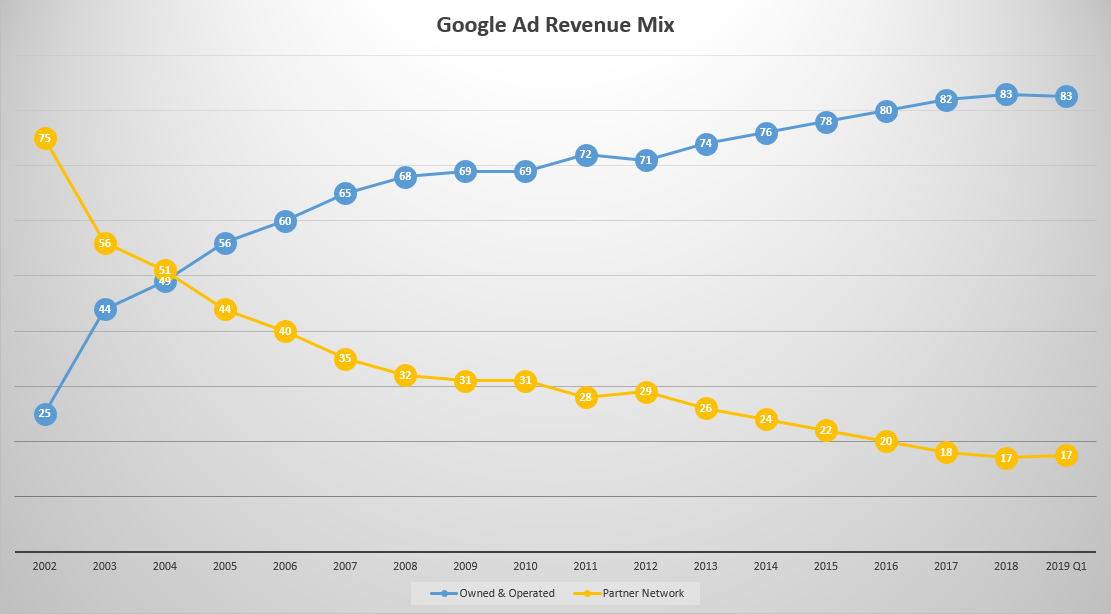
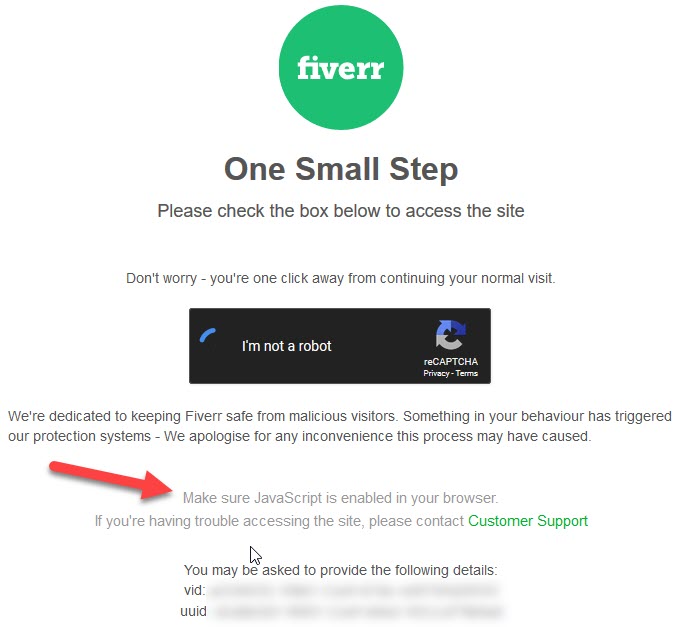
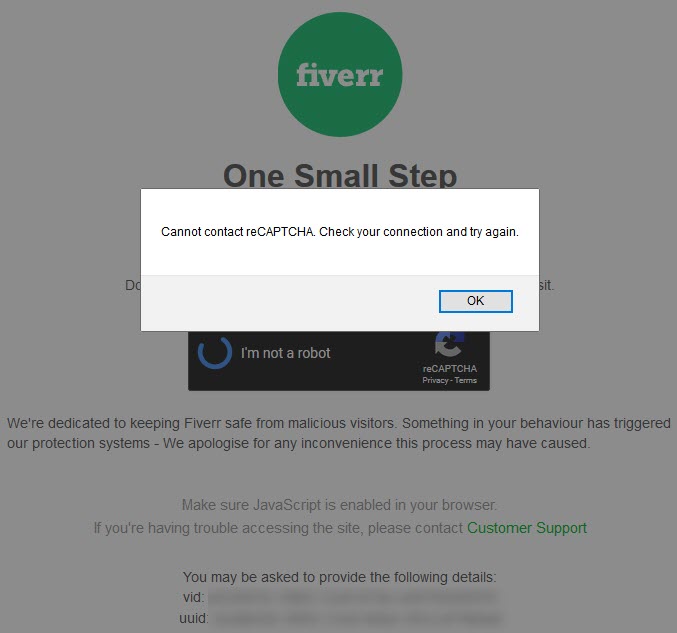
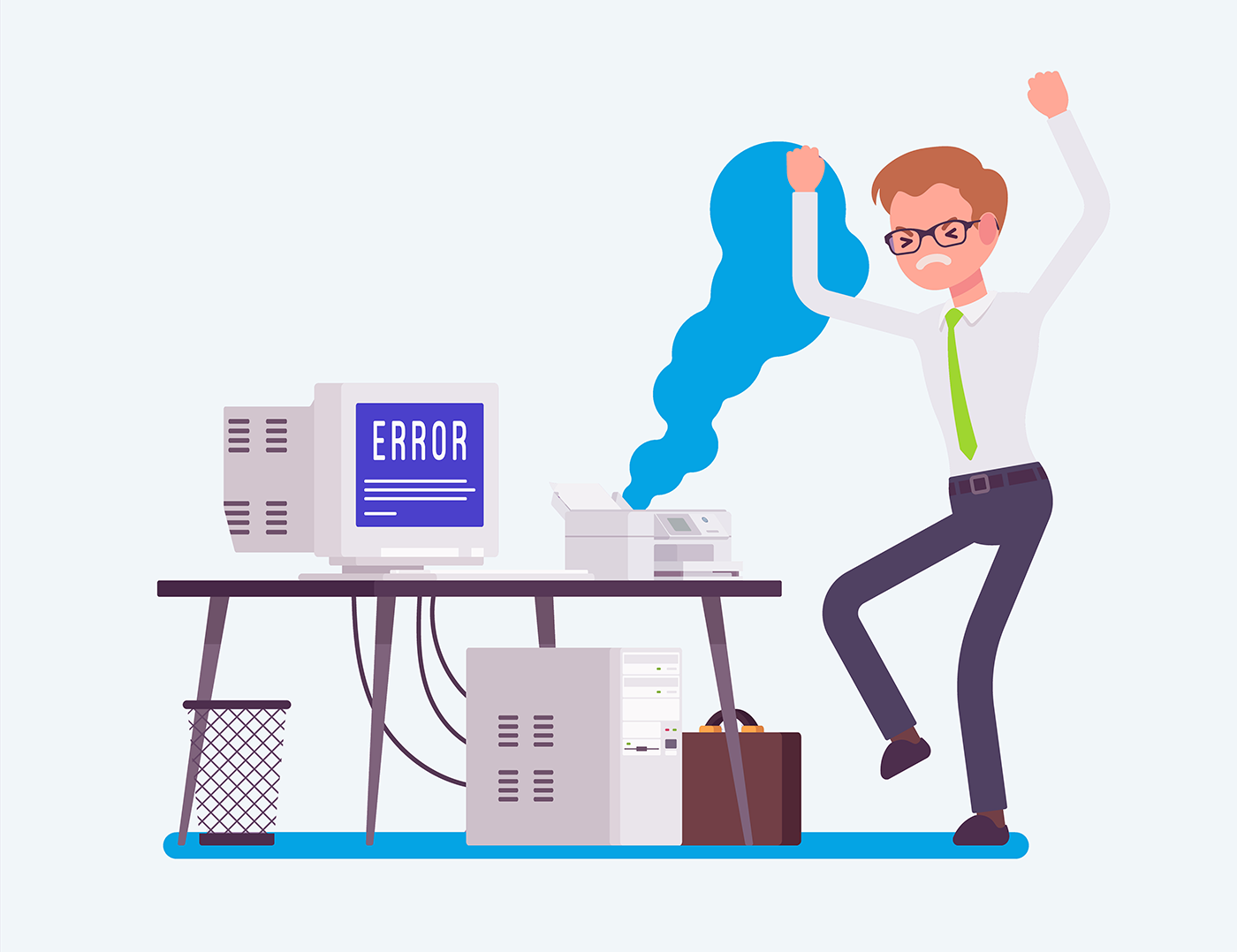
 RSS Feed
RSS Feed
